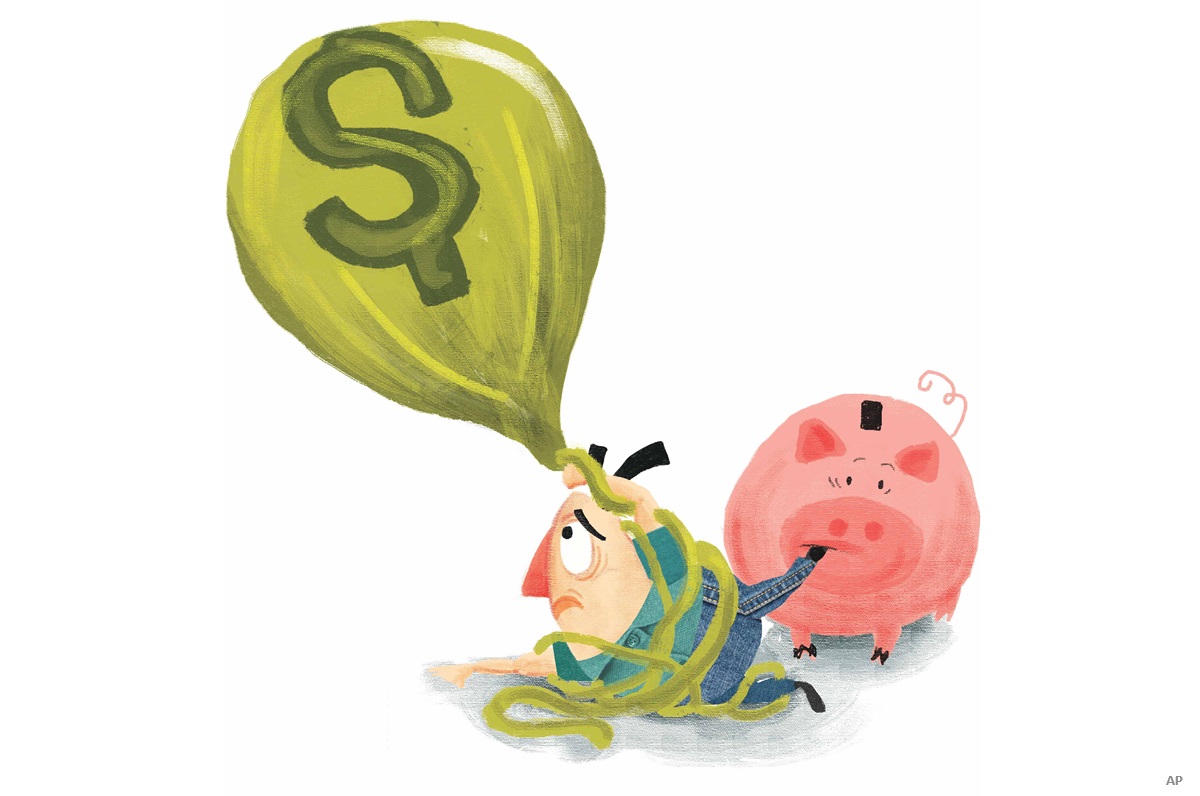
This year has been one of the busiest in terms of trading activity for Darren McKiernan, senior vice president, portfolio manager and head of the global equity and income team at Toronto-based Mackenzie Investments.
McKiernan, who manages the four-star Mackenzie Global Strategic Income Fund along with Steve Locke, senior vice president, portfolio manager and head of the fixed income team, and Konstantin Boehmer, vice president and portfolio manager, says the team doesn’t usually trade frequently. But the portfolio turnover in just three weeks last spring after it became obvious that COVID was a global pandemic was about 20% more than normally would have taken place during a full year.
Quick Cuts Were Key
“We are not usually big traders, but we can react quickly and we made a lot of changes,” says McKiernan, who focuses on the equity portion of the balanced fund. “If we had the slightest worry about a company’s balance sheet or the ability of the business to thrive in an uncertain environment we got rid of the holding.”
For example, the team sold positions in energy companies due to their vulnerability to a slowdown. Wells Fargo & Co. (WFC) was sold and the proceeds rolled into other higher-quality holdings in the financial services sector including JPMorgan Chase & Co. (JPM) and private equity investment manager Blackstone Group Inc. (BX)
Shares were also sold in Texas-based Saber Corp., which provides global airline and hotel reservation software, and exchanged for another company in the same business, Amadeus IT Group of Spain. Amadeus is less leveraged and the stock price had fallen into an attractive buying range.
A Variety of Buying Opportunities
The team, which invests around the world including emerging markets, initiated its first position in India-based Housing Development Finance Corp. (HDFC), a provider of mortgages. “We had been looking at the company for ten years, and there was a good opportunity to buy during the market correction,” McKiernan says.
The team also initiated a “fresh buy” in Walt Disney Co. (DIS) when amusement parks were shut down and the share price slumped to around US$85. It has since risen to more than US$156.
“The stock market is a forward-looking discounting mechanism,” McKiernan says. “Disney has reduced its cost structure and when it reopens it will be in a better position. We are looking ahead three to five years.”
The five-star, silver-rated Mackenzie Global Strategic Income F Series fund has performed well year-to-date, showing a 9.28% gain at Dec. 14. Furthermore, it boasted a solid 10-year average annual compound return of 8.05%, and achieved top-decile performance in Morningstar’s Global Neutral Balanced category for year-to-date, one, three, five and ten-year periods.
The fund’s target asset allocation is 52.5% stocks and 47.5% fixed income. Currently, the equity weight is around 53%. Managers are free to explore the global field of fixed income and equity securities, and they also actively manage currency exposure.
The team aims to deliver both growth and income to investors. Growth comes from the careful selection of high-quality dividend-paying companies. The goal is a higher average yield for the fund than its benchmark on the equity side, the MSCI World Index.
On the fixed-income side, the fund invests in a range of securities including government bonds, emerging market debt, tradeable bank loans and mortgages. The fund’s yield exceeds the benchmark Bank of America Merrill Lynch Global Broad Market Index due to a few differences, such as being underweight in no-yield Japanese bonds as well as including issues with slightly lower credit ratings but higher yields.
The equity portion of the fund may include 50 to 80 companies, but the team leans toward the higher end of the range and currently holds around 75. About 75% of the holdings are large-cap stocks with a market capitalization of more than US$50 billion.
Signature Self-Discipline
“We are not as concentrated as some funds,” McKiernan says. “We are conservative, and we want to lower volatility by having more names. In reality, concentration can be great when you’re right, but not when you’re wrong. You only need to stub your toe a couple of times to impair returns.”
Risk reduction measures include limiting any one holding to 6% of fund assets and having a minimum of six sectors represented in the fund. No one sector can be more than 250% above the index weight.
“Our biggest risk mitigation strategy is to own superior businesses – the rest takes care of itself,” McKiernan says.
One of the team’s techniques is to obtain exposure to big picture trends in ways that are not so obvious. For example, in the global travel industry, which showed promising growth before the pandemic hit, the fund avoided airlines, which the team views as a difficult business. Instead, the fund held companies that provided passenger reservations or were involved in building jet engines.
The fund’s two largest holdings are Apple Inc. (AAPL) and Microsoft Corp. (MSFT) Both have been held for roughly a decade, although trimmed as stock prices have risen. Another significant holding in the tech sector is Taiwan Semiconductor Manufacturing Co. (TSM), the dominant player in the chip industry.
McKiernan says the outlook remains healthy for these growth-oriented tech stocks, particularly if global interest rates stay low. However, he says there has recently been some rotation in the stock market toward “value” stocks as investor hopes have risen for a resumption in economic growth with the arrival of COVID vaccines.
“We own some value stocks and will add more if we see more clarity,” he says. “The direction of the pandemic is front and centre. Although there appears to be light at the end of the tunnel with good news about vaccines, a lot can happen. It’s not just a matter of a vaccine being available, it’s a question of how many people will take it and how long that will take to affect the economy. It’s likely that a fresh round of government stimulus will be required.”
























